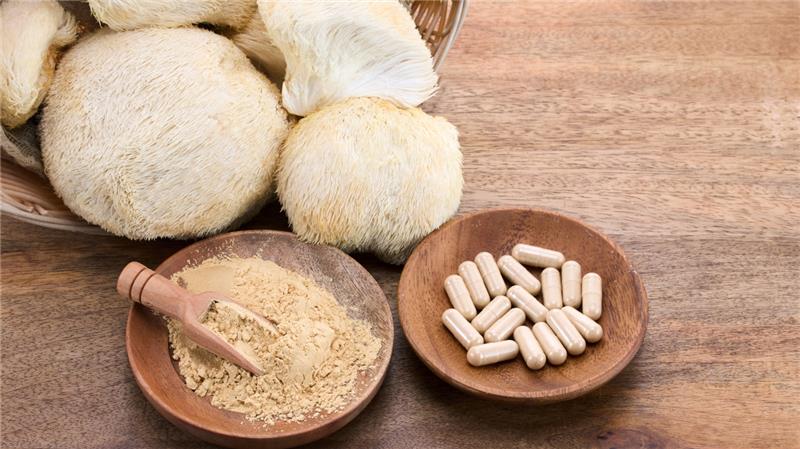The Science Behind How Your Lion's Mane Supplement Actually Works

Have you ever wondered how your lion's mane supplement actually works? This fascinating fungus has gained immense popularity for its potential to boost cognitive function and support overall well-being. As you explore the world of natural health supplements, understanding the science behind lion's mane can help you make informed decisions about your mental and physical health.
Your lion's mane supplement contains a variety of bioactive compounds that impact your body in unique ways. From its neuroprotective properties to its effects on gut health, this mushroom offers a range of benefits. In this article, we'll dive into the key components of lion's mane, its influence on brain health and mental performance, and its potential to reduce oxidative stress and inflammation. You'll discover how this supplement might improve your memory, support your nervous system, and even help manage anxiety and
Key Bioactive Components
Your lion's mane supplement contains a variety of powerful compounds that contribute to its health benefits. The main bioactive components can be categorized as follows:
|
Component |
Type |
Effect |
|
Hericenones |
Terpenoids |
Stimulate nerve growth factor (NGF) production, enhancing cognitive function. |
|
Erinacines |
Alkaloids |
Promote NGF synthesis, supporting neuron health and regeneration. |
|
Ergothioneine |
Amino Acid |
Acts as an antioxidant, protecting cells from oxidative stress. |
|
Polysaccharides |
Carbohydrates |
Support gut health, reduce inflammation, and enhance immune function. |
These bioactive components work together to provide the wide range of potential benefits associated with your lion's mane supplement.
Neuroprotective Properties of Lion's Mane
Your lion's mane supplement has impressive neuroprotective properties. It stimulates the production of nerve growth factor (NGF), which is crucial for maintaining and regenerating neurons in your brain. This NGF-boosting effect is thought to be responsible for many of the cognitive benefits associated with lion's mane. Studies have shown that lion's mane can help protect against neurodegenerative diseases like Alzheimer's by reducing oxidative stress and inflammation in the brain.
Moreover, lion's mane has been found to influence insulin-degrading enzyme (IDE) levels, which play a role in clearing amyloid-beta plaques associated with cognitive decline. By enhancing NGF production and regulating IDE, lion's mane may help slow down cognitive decline and promote neuroprotection. This is particularly important as we age, as maintaining cognitive function is essential for a high quality of life. Additionally, lion's mane has been found to promote neurogenesis, the growth of new brain cells, which is essential for maintaining cognitive function as you age.
Lion's Mane and Mental Health
Lion's mane also shows promise in supporting mental health. The bioactive compounds in this mushroom may help manage anxiety and depression. Research suggests that lion's mane can reduce symptoms of anxiety by promoting the production of NGF, which supports the health of neurons involved in mood regulation.
Furthermore, the polysaccharides in lion's mane can positively influence gut health, which is closely linked to mental well-being. A healthy gut microbiome can lead to improved mood and reduced anxiety levels. The polysaccharides help maintain a balanced gut environment by promoting the growth of beneficial bacteria and reducing inflammation. This connection between gut health and mental health highlights the importance of considering lion's mane as a holistic approach to well-being.
Gut Health and Polysaccharides
The polysaccharides found in lion's mane play a significant role in gut health. They help support the growth of beneficial gut bacteria, which are essential for digestion and overall health. By promoting a healthy gut microbiome, these compounds can enhance nutrient absorption and support immune function.
Additionally, the anti-inflammatory properties of polysaccharides can help reduce gut inflammation, which is often linked to various digestive issues. This reduction in inflammation can lead to improved gut function and overall health. The mechanism by which polysaccharides exert these effects involves modulating the immune response and promoting the production of short-chain fatty acids, which are beneficial for gut health.
In conclusion, understanding the science behind your lion's mane supplement can empower you to make informed choices about your health. With its unique bioactive components, lion's mane offers a range of benefits, from enhancing cognitive function to supporting gut health. By incorporating this fascinating fungus into your daily routine, you may find yourself on a path to improved mental and physical well-being. Whether you're looking to boost your memory, manage anxiety, or simply support your overall health, lion's mane could be a valuable addition to your supplement regimen.
